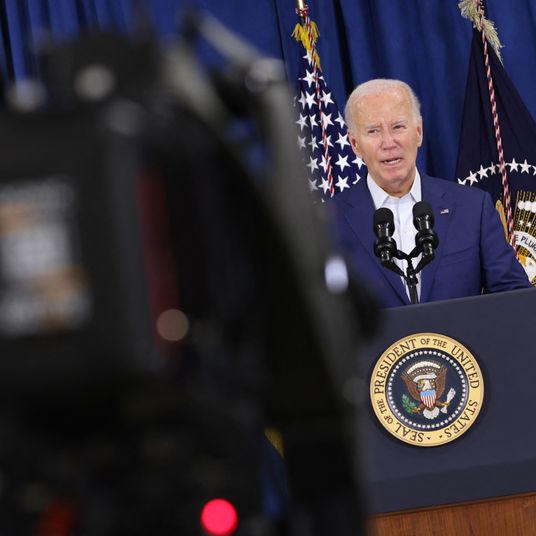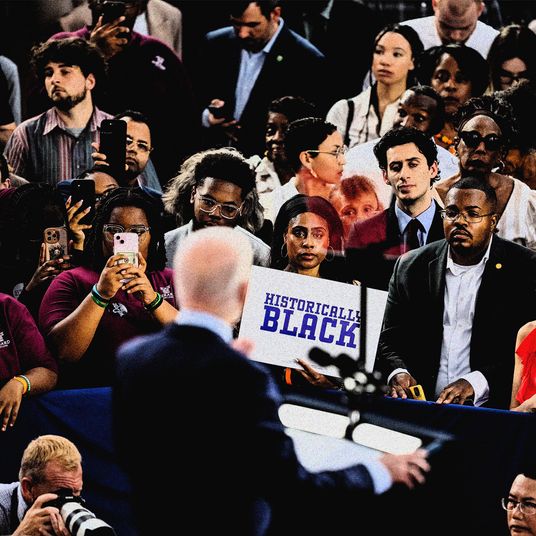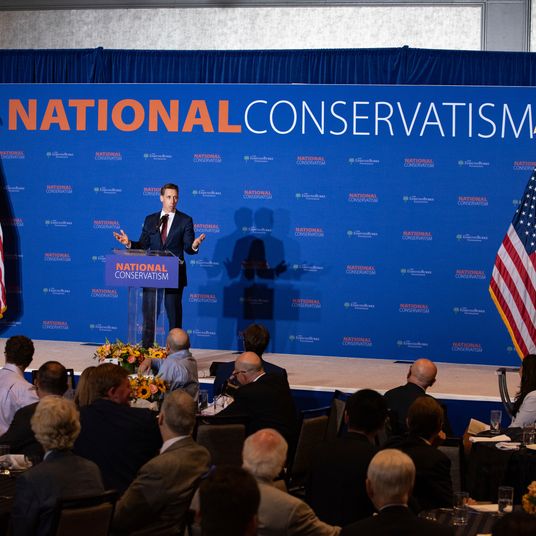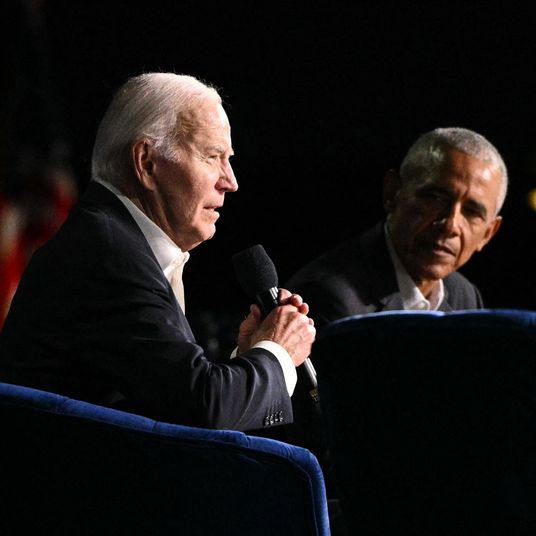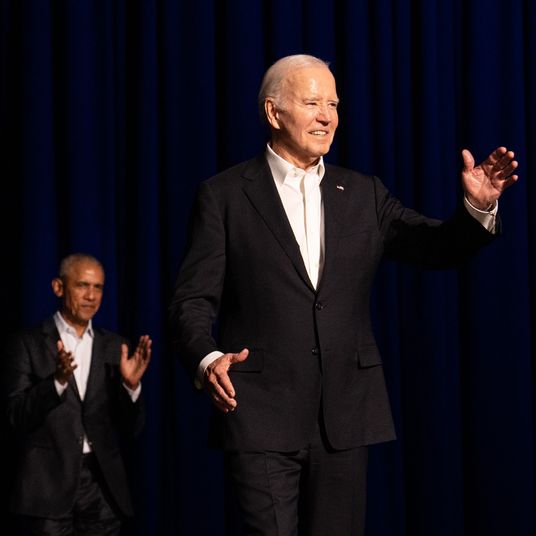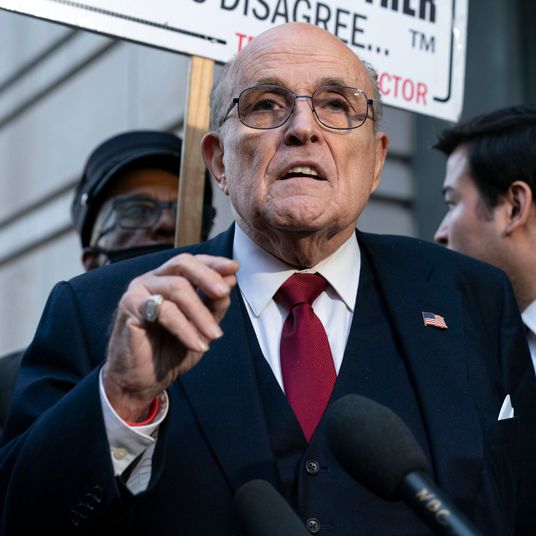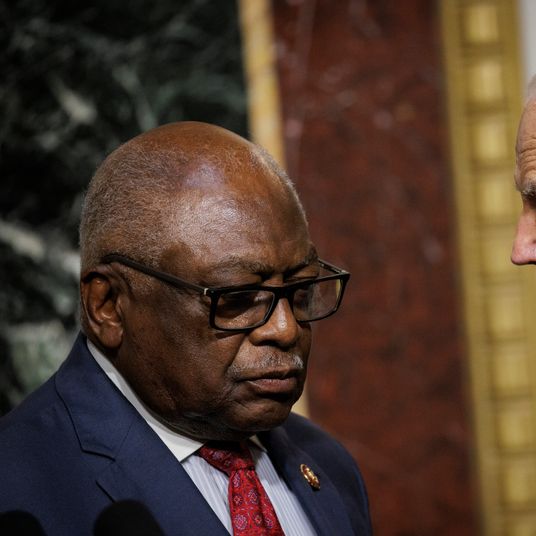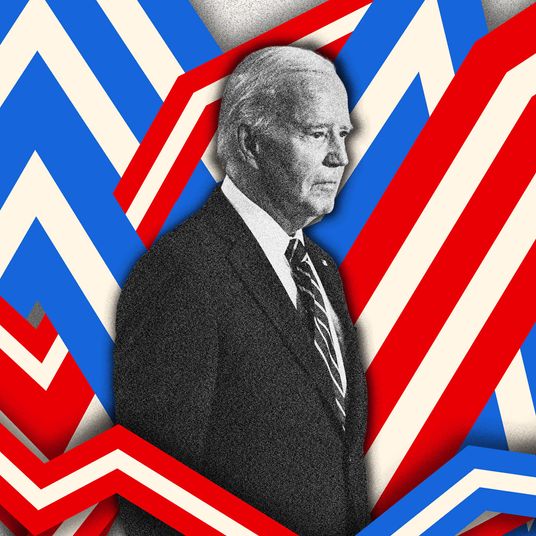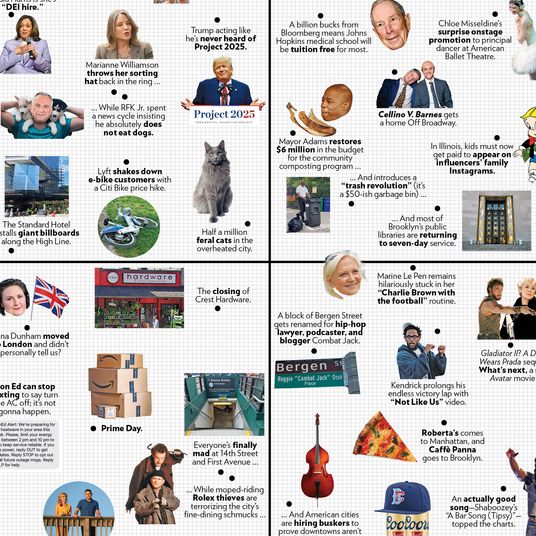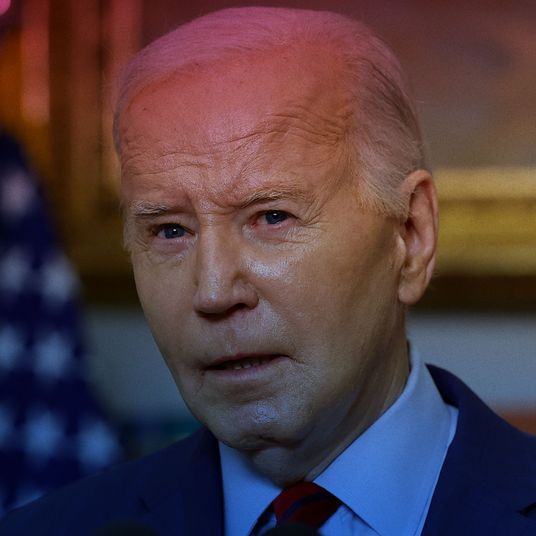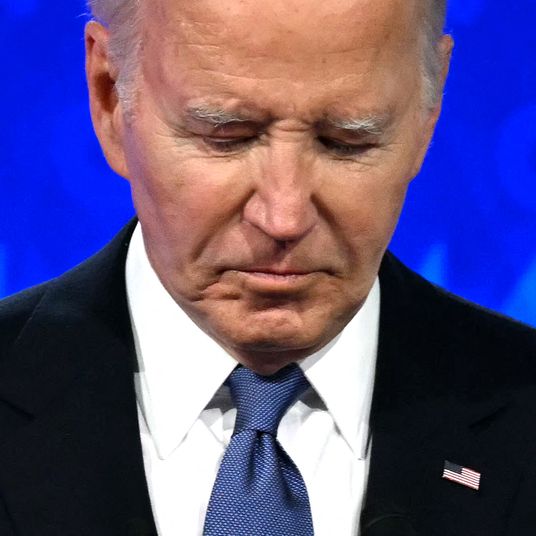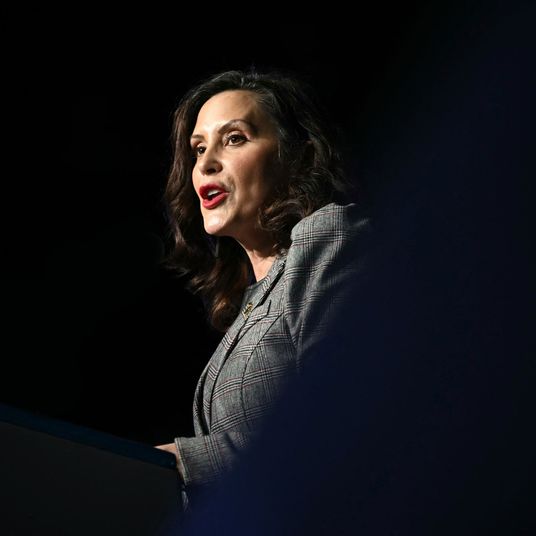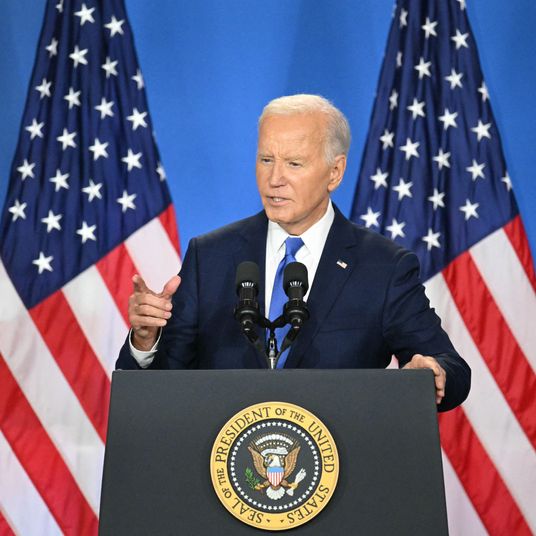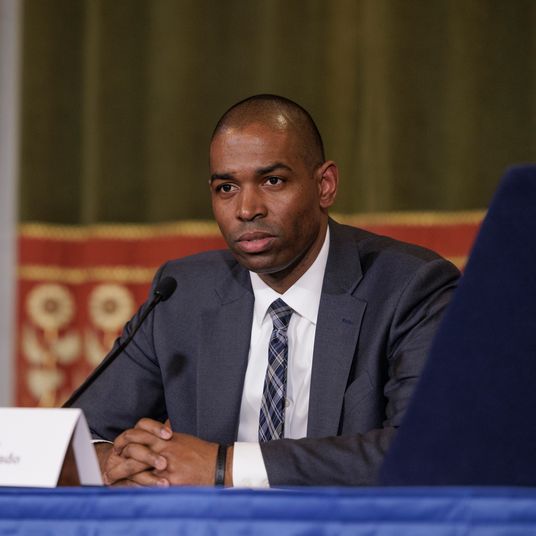
You can be forgiven if you thought the criminal conviction of Donald Trump on 34 felony counts by a New York jury might be a game-changing moment in the 2024 presidential contest. After all, as we’ve been reminded countless times, this is an unprecedented development. Low-information voters (a key part of Trump’s current support base) unaware of the 45th president’s career-long crime-boss habits when it comes to skirting the law would be shocked to find him facing a possible jail sentence, right? Plus there was a lot of polling data indicating that adding “convicted criminal” to a presidential candidate’s résumé might cause voters to “reconsider” their choice of candidates.
In the end, though, the key question isn’t how voters think about Trump’s conviction or his underlying conduct. It’s whether they’ll still vote for him for president. And the early indications from limited polling data are that the bombshell news from Manhattan isn’t having any significant effect on the Trump-Biden horse race.
The polling averages have barely budged. At RealClearPolitics Trump led Biden in head-to-head matchups by 0.8 percent on May 30, the day of the guilty verdict. Now his lead is at 1.0 percent. In five-way surveys that include minor candidates, Trump’s lead at RCP was at 2.2 percent on May 30 and is exactly the same now. FiveThirtyEight’s average of polls that include Biden, Trump, and Kennedy show the Republican’s lead slipping marginally from 1.7 percent on May 30 to 1.6 percent now.
We have just two credible post-conviction battleground state polls, and they, too, don’t show any dramatic results. A Mitchell Research survey from Michigan shows a 49 - 47 percent Trump lead in May becoming a 48 - 48 percent tie on June 3. In a five-way race, Mitchell has an identical one-point Trump lead in May and June. Meanwhile, Quinnipiac has released a new post-conviction survey of Georgia showing Trump leading Biden by five points (49 - 44 percent) in a head-to-head matchup, and by six points (43 - 37 percent) in a five-way race. While this is Q-Pac’s first 2024 polling from Georgia, both results are nearly identical to the pre-conviction RCP polling averages from that state.
There’s also not much in the way of any discernible post-conviction trend in the results from any one pollster. Emerson showed Trump’s lead slipping from two points in late May to one point now in the head-to-head matchup, but rising from five points in late May to six points now in a five-way race. Morning Consult’s tracking poll had Trump up by one point in mid-May, by two points in late May, and by one point as of June 2. Economist/YouGov’s five-way matchup had Trump up by one point as of May 28; its latest survey from June 2 through 4 has the race tied. In the former poll, Trump’s favorable/unfavorable ratio was 41 percent favorable to 55 percent unfavorable; in the latter, it was 41 percent favorable to 55 percent unfavorable. The latest Economist/YouGov survey also showed 92 percent of registered voters — rising to 95 percent among Trump supporters — saying the guilty verdict in Manhattan did not make them reconsider their 2024 voting preference. Whatever voters told pollsters about a hypothetical criminal conviction, the actual criminal conviction isn’t creating much movement, or even reconsideration.
There is an interesting if debatable bit of new data from the New York Times, which resurveyed past Times-Siena poll respondents and found (among those participating) a small but noticeable shift of former Trump supporters away from him. But it’s not a full poll with clear findings.
It’s possible, of course, that the relatively small impact of the conviction will change with time, particularly after the 50th or the 100th reference by Biden and his campaign to “convicted criminal Trump.” But more typically, big news events like the Trump verdict matter most in the short term with the effect fading as the more fundamental aspects of the contest reassert their influence. In October 2016, for example, Hillary Clinton got a significant boost in the week following the release of the Access Hollywood tape showing Trump at his piggiest. It looked for a moment as though Trump’s candidacy was doomed. Between then and Election Day, though, Clinton’s lead faded, and Trump squeaked through to an Electoral College win. We have a long way to go before voting begins in 2024. But it appears it will take more than a guilty verdict in Manhattan to beat Trump.
This piece has been updated.
More on politics
- Trump Assassination Attempt Suspect Identified: Live Updates
- The Secret Service Agent Who Caught a Bullet for Reagan on the Trump Shooting
- Republican Lawmakers Immediately Blame Biden for Trump Shooting








